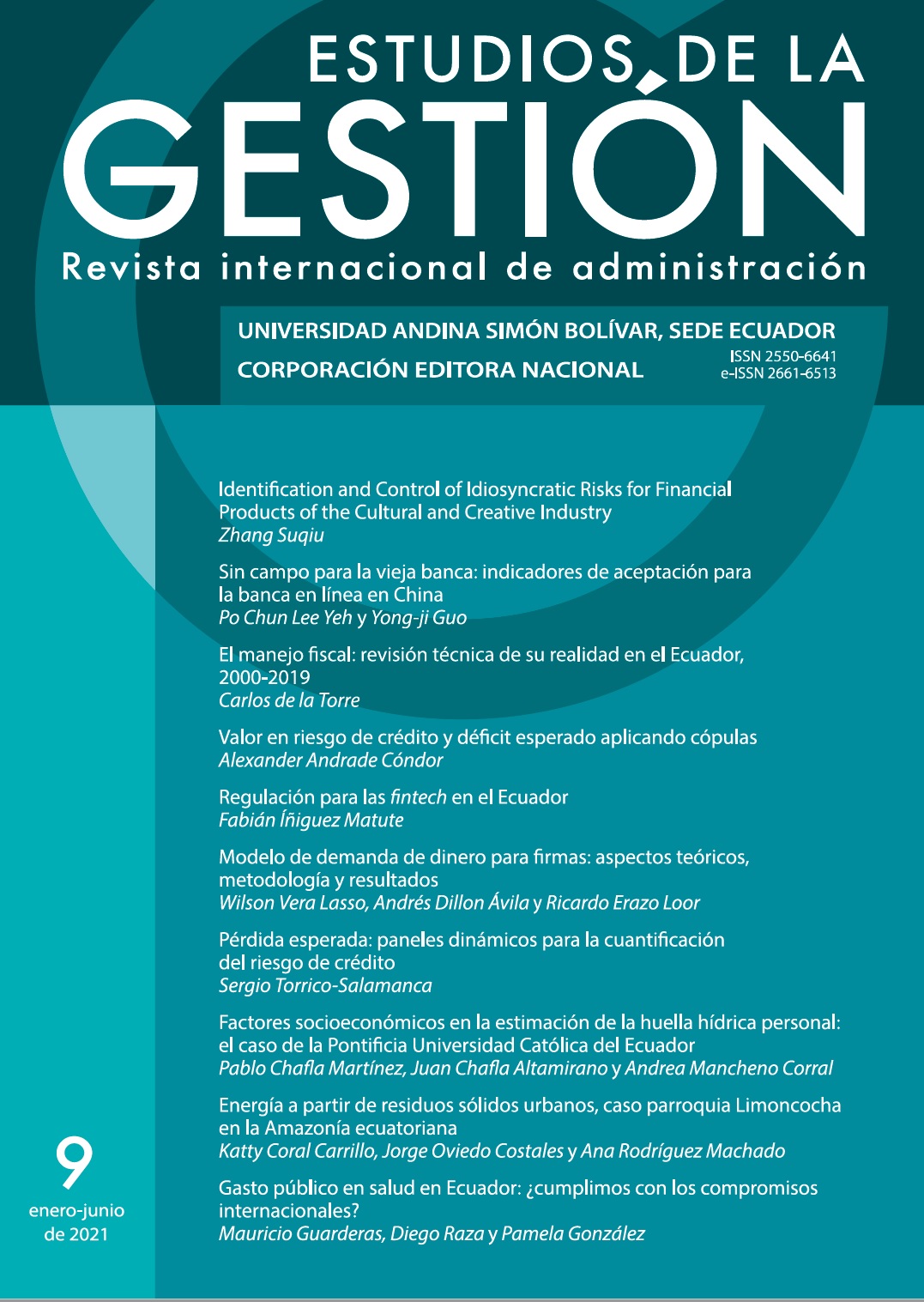Fiscal Management: Technical Review of its Reality in Ecuador, 2000-2019
DOI:
https://doi.org/10.32719/25506641.2021.9.3Keywords:
Income, spending, debt, fiscal deficitAbstract
The debate on fiscal matters in Ecuador has been permanent at least in the recent history of the country, but in recent years it has generated greater interest due to various circumstances, particularly due to important changes in the variables evolution of public management. During this time, a few people have made public some data on fiscal management, which, in many cases, has not been adjusted to reality or to the facts, but has become inputs for the construction of various adequate accounts to particular visions
regarding the Ecuadorian economy. From the contrast of these reports with theoretical and technical foundations, supported by available official quantitative information, it is shown that much of the current debate takes place far from the use of evidence and solid theoretical bases. This article systematizes this contrast in order to propose a new story, attached to reality from a technical and academic perspective. From this exercise it is concluded that a good part of the statements and concepts that, in tax matters, is in the public domain,
differ substantially from what the figures present and are covered by the standard.
Downloads
References
Carrera, Jaime. 2020. “Aquí están las pruebas del Estado obeso”. 4 Pelagatos. 12 de marzo. Accedido mayo 2020. https://tinyurl.com/y8svtvej.
Comisión Económica para América Latina y el Caribe (CEPAL). 2018a. Balance preliminar de las economías de América Latina y el Caribe. Santiago: CEPAL. Accedido abril 2020.
---. 2018b. La política fiscal es un instrumento fundamental para alcanzar la Agenda 2030 y un crecimiento inclusivo con mayor igualdad. Santiago: CEPAL. Accedido abril 2020.
---. 2019. Panorama fiscal de América Latina y el Caribe. Políticas tributarias para la movilización de recursos en el marco de la Agenda 2030 para el Desarrollo Sostenible. Santiago: CEPAL. Accedido abril 2020. https://tinyurl.com/ydx5g5bb.
EC. 2010. Código Orgánico de Planificación y Finanzas Públicas (COPLAFIP). Registro Oficial, Segundo Suplemento 306, 22 de octubre.
---. 2018. Ley Orgánica para el Fomento Productivo, Atracción de Inversiones, Generación de Empleo, y Estabilidad y Equilibrio Fiscal. Registro Oficial, Suplemento 309, 21 de agosto.
EC Banco Central del Ecuador (BCE). 2020. Información estadística mensual. Quito: BCE. Accedido mayo 2020. https://tinyurl.com/y6ljqz95.
EC Ministerio de Economía y Finanzas. 2019. Subsecretaría de Crédito Público. Boletín de deuda pública, marzo. Quito: Ministerio de Economía y Finanzas. Accedido abril 2020.
El Comercio. 2018a. “Contraloría integró veeduría sobre deuda pública interna y externa”. El Comercio. 9 de enero. Accedido marzo 2020. https://tinyurl.com/y7y7tkjd.
---. 2018b. “Ecuador colocó USD 3000 millones en bonos soberanos”. El Comercio. 18 de enero de 2018. Accedido marzo 2020. https://tinyurl.com/y7gy9u8p.
---. 2018c. “Deuda: Contraloría recogió observaciones de veedores”. El Comercio. 3 de abril de 2018. Accedido marzo 2020. https://tinyurl.com/yd8tu97x.
---. 2018d. “El informe sobre la auditoría a la deuda pública, en revisión final”. El Comercio. 3 de abril. Acedido marzo 2020. https://tinyurl.com/y8x4djh3.
El Universo. 2019a. “Obligaciones económicas de Ecuador ascienden a más de $ 58.000 millones, según ministro”. El Universo. 18 de mayo. Accedido marzo 2020.
---. 2019b.“Régimen anterior dejó $ 75.000 millones de deuda, aseguró el presidente Lenín Moreno”. El Univeso, 17 de mayo. Accedido marzo 2020. https://tinyurl.com/y9n8b922.
Fondo Monetario Internacional (FMI). 2011. Convenio constitutivo del Fondo Monetario Internacional 1944. Washington D. C.: FMI. https://tinyurl.com/y7ecprl6.
---. 2014. Manual de estadísticas de finanzas públicas. Washington D. C.: FMI. https://tinyurl. com/y8h3db9j.
---. 2019. Ecuador Staff Report for the 2019 Article IV consultation and request for an Extended Arrangement under the Extended Fund Facility. Washington D. C.: FMI.
Fornero, Jorge, Juan Guerra-Salas y Camilo Pérez. 2019. “Multiplicadores fiscales en Chile”. Economía chilena 22 (1): 58-80. https://tinyurl.com/y5w7rtem.
Martínez Rangel, Rubí, y Ernesto Reyes Garmendia. 2012. “El Consenso de Washington: la instauración de las políticas neoliberales en América Latina”. Política y Cultura 37: 35-64.
Pozo, Mauricio. 2018. “Crecimiento ‘demencial’ de la deuda se debe al desorden fiscal”. Ecuador en Vivo. 19 de marzo. Accedido mayo 2020. https://tinyurl.com/y7et98ef.













